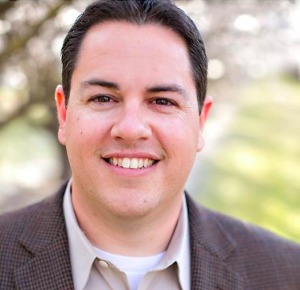Two Kinds of Righteousness
The key conviction in Luther’s approach to battling despair in the life of a believer is Luther’s view of passive and active righteousness. Luther’s distinction between passive and active righteousness is helpful in our struggle to comprehend Luther’s counsel to Jerome to “completely set aside the whole Decalogue” (Tappert 86). Luther likely did not encourage setting aside the Decalogue as an antinomian sentiment. It is doubtful he was urging Jerome to dive headlong into sin. It is true that he exhorted Jerome to “even commit some sin in defiance and contempt of the devil in order not to give him an opportunity to make us scrupulous about trifles” (Tappert 86). However, it is probably not a proper understanding of this advice to conclude that Luther was interested in Jerome committing some sin, but rather that he would cease being excessively “scrupulous about trifles.” Luther likely feared that Jerome would surrender to the Devil’s temptation to despair over his own lack of righteousness, rather than trust in a righteousness which is not his own. Luther appeared determined to redirect Jerome’s gaze outside of himself for righteousness. This is why Luther said,
When the devil throws our sins up to us and declares that we deserve death and hell, we ought to speak thus: ‘I admit that I deserve death and hell. What of it? Does this mean that I shall be sentenced to eternal damnation? By no means. For I know One who suffered and made satisfaction in my behalf. His name is Jesus Christ, the Son of God. Where he is, there I shall be also’ (Tappert 86).
Passive Righteousness
Luther taught two kinds of righteousness. The first kind of righteousness he called “alien righteousness.” This is a passive righteousness, which is really “the righteousness of another, instilled from without” (Russell and Lull 119). We receive this righteousness through faith in Christ as, “Christ’s righteousness becomes our righteousness and all that he has becomes ours; rather, he himself becomes ours” (Russell and Lull 120). This passive righteousness is sufficient for our justification before God because,
This is an infinite righteousness, and one that swallows up all sins in a moment, for it is impossible that sin should exist in Christ. On the contrary, he who trusts in Christ exists in Christ; he is one with Christ, having the same righteousness as he. It is therefore impossible that sin should remain in him. This righteousness is primary; it is the basis, the cause, the source of all our own actual righteousness. For this is the righteousness given in place of the original righteousness lost in Adam. It accomplishes the same as that original righteousness would have accomplished; rather, it accomplishes more. (Russell and Lull 120)
Thus, passive righteousness is “what makes people who they are at their core, their fundamental identity” (Kolb 22). It is only the passive righteousness that comes through faith, which “provides the sinner with the comforting assurance of standing under the approving eye of God” (Kolb and Arand 29). Further, passive righteousness is what releases the believer from fear of the judgment of others, including Satan. “The passive righteousness of faith also frees me from what others say about me…For faith believes God’s gracious judgment despite all empirical evidence to the contrary. In other words, we cling to the promise regardless of how many times instant replays of our weaknesses and failures flash before our eyes.” Luther was likely pressing Jerome to consider the passive righteousness that is his identity in Christ. He was urging Jerome to turn from seeking his assurance inside of himself and to flee to the cross of Christ where his righteousness is found.
Active Righteousness
This is precisely the point at which some contemporary pastors seem to stop listening to Luther and embrace a kind of antinomianism that they claim to have learned from him. Because Luther taught that the believer’s identity is a passive righteousness from without, they assume he believed that God’s Law has little bearing on the Christian life. They fail to understand Luther’s teaching about the necessity of proper righteousness, or active righteousness. Therefore, they read Luther in a manner that would have been foreign to him. On this understanding of Luther, his letter to Jerome is a shining example of how to exhort people to flout God’s law in the midst of despair and embrace the sadly vacuous mantra, “Jesus plus nothing equals everything” (Tchividjian 95). [The phrase “Jesus plus nothing equals everything” is not a problem if one is pointing to all the benefits that are ours through union with Christ. However, as a result of the writings of Tullian Tchividjian, the mantra seems to exhort people to contemplate only justification. While speaking about our sanctification, Tullian wrote, “The hard work of Christian growth, therefore, is to think less of ourselves and our performance and more of Jesus and his performance for us.”]
Luther taught that active righteousness, or proper righteousness, always accompanied passive righteousness, or alien righteousness.
Luther stipulated that our active righteousness is “the product of the righteousness of the first type, actually its fruit and consequence” (Russell and Lull 121). These two kinds of righteousness are given in the covenantal union with Christ. As Luther described it, “through the first righteousness arises the voice of the bridegroom who says to the soul, ‘I am yours,’ but through the second comes the voice of the bride who answers, ‘I am yours.’ Then the marriage is consummated (Russell and Lull 121).” Thus, Luther held to two kinds of righteousness that are ours through union with Christ.
Finding Assurance in Passive Righteousness
However, though our active righteousness leads to the necessary Law-keeping that springs from our receiving passive righteousness, we are not to find our assurance and confidence before God in active righteousness. Luther was not encouraging Jerome to abandon belief in the necessity of active righteousness. Rather, Luther was exhorting Jerome, in the midst of his despair, to cast himself upon the passive righteousness that is his in Christ. This is entirely consistent with Luther’s teaching in Galatians,
Therefore the afflicted conscience has no remedy against despair and eternal death except to take hold of the promise of grace offered in Christ, that is, this righteousness of faith, this passive or Christian righteousness, which says with confidence: “I do not seek active righteousness. I ought to have and perform it; but I declare that even if I did have it and perform it, I cannot trust in it or stand up before the judgment of God on the basis of it. Thus I put myself beyond all active righteousness, all righteousness of my own or of the divine Law, and I embrace only that passive righteousness which is the righteousness of grace, mercy, and the forgiveness of sins.”In other words, this is the righteousness of Christ and of the Holy Spirit, which we do not perform but receive, which we do not have but accept, when God the Father grants it to us through Jesus Christ. (Pelikan, Oswalkd, and Lehmann vol. 26, 5-6)
Luther believed the gospel of passive righteousness must be preached and applied to individual people in the midst of their personal struggles, and that such proclamation not only announces, but also creates reality. Luther’s understanding of proclaiming the Word of God was not reserved for the pulpit but needed to be shared in the context of private interactions as well. He knew this was the help Jerome Weller needed as Satan tempted him to look to his own active righteousness. He needed the gospel of the passive righteousness of Christ to be preached into his individual situation to remind him of the new reality which is obtained because God’s Word creates the reality it speaks.
The unchangeable truths of Scripture must be proclaimed to specific human beings in their specific environments as the gospel addresses their realities and brings its power to change those realities through forgiveness and the promise of new life in Christ. God’s Word not only describes reality but also creates it. In the beginning God said, “Let there be …” and reality came into existence. God says, “I forgive,” and the reality of a new creature comes into existence or is sustained in life as a child of God (Kolb and Arand 13).
Works Cited
Theodore G. Tappert, Luther: Letters of Spiritual Counsel, ed. Theodore G. Tappert (Vancouver, B.C.: Regent College Publishing, 2003).
Martin Luther, Martin Luther’s Basic Theological Writings, ed. William R. Russell and Timothy F. Lull, Third Edition. (Minneapolis, MN: Fortress Press, 2012).
Robert Kolb, Luther and the Stories of God, Biblical Narratives as a Foundation for Christian Living (Grand Rapids, MI: Baker Academic, 2012).
4. Robert Kolb and Charles P. Arand, The Genius of Luther’s Theology: A Wittenberg Way of Thinking for the Contemporary Church (Grand Rapids, MI: Baker Academic, 2008).
Tullian Tchividjian, Jesus + Nothing = Everything, (Wheaton, Crossway, 2011), 95, Kindle.
Martin Luther, Luther’s Works, Vol. 26: Lectures on Galatians, 1535, Chapters 1-4, ed. Jaroslav Jan Pelikan, Hilton C. Oswald, and Helmut T. Lehmann, vol. 26 (Saint Louis: Concordia Publishing House, 1999).



























